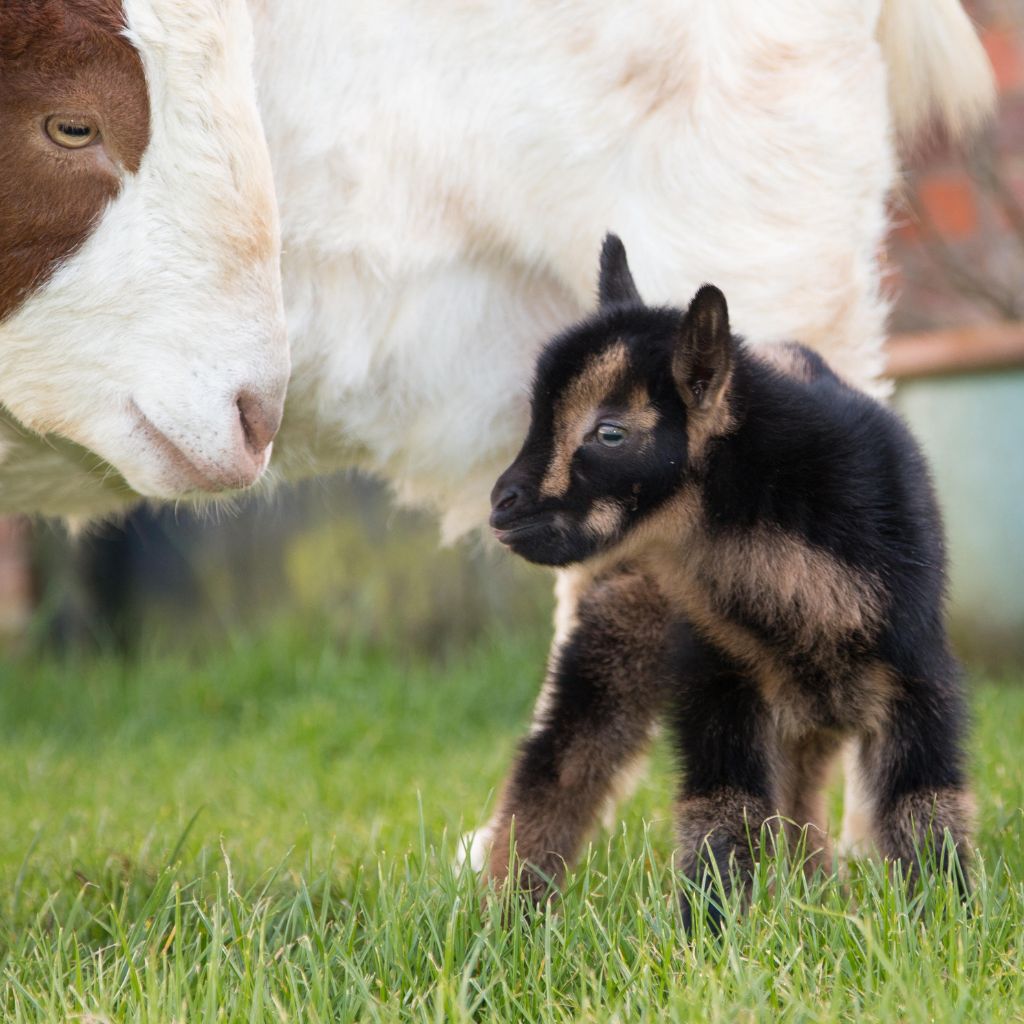Introducing The World’s Smallest Dairy Goat

Stacey and Steven Briggs, owners of Windmill Farm Park, Kibworth Harcourt, LE8 0PR have, through innovative use of in vitro fertilisation (IVF), introduced the Nigerian Dwarf Goat breed into the UK.
Known as the world’s smallest Dairy Breed, the new Nigerian Dwarf Kid was born at Windmill Farm Park on 14 March. At just 22 cm tall, he is expected to grow no more than 60 cm, a third smaller than his standard UK dairy goat cousins. Extremely cute, he is already a firm favourite by the livestock team at the Farm.
With other Nigerian Dwarf Goats located in America and Australia, this is a huge step forward for the breed which has only been made possible through the movement of frozen embryos. Both Steven and Stacey have a love of rare breeds with Steven growing up surrounded by animals at Windmill Farm. Stacey’s interest for the Nigerian Dwarf Goats started soon after she found out she was intolerant to cow’s milk in 2010. She was surprised the World’s smallest milking goat didn’t exist in the UK. The only way to reintroduce the breed was to bring over frozen embryos to implant. Given their passion for animals it only made sense to choose this project over a big wedding.
Said Stacey, “It’s been a rollercoaster of emotions. After many challenges, we implanted nine embryos into our six Boer goats in October and scanning in January revealed we had one successful pregnancy. We have had our arms, fingers and toes crossed since then and were relieved when a healthy baby boy was born on Thursday 14 March 2024. His surrogate Mum, Myrtle is doing a brilliant job of looking after him. She is absolutely besotted.”
In addition to being the World’s smallest dairy breed, the Nigerian Dwarf breed is also known for their excellent quality milk. Not only richer in buttermilk than the larger breeds, but they can also produce a substantial amount for their size.
The frozen embryos started their journey from the United States on Monday 10th July last year following over 18 months of planning and paperwork. Clearing UK customs on 4th August they were then held in a UK storage centre until 25th October when nine embryos were implanted into six Boer goats. Mother and baby are doing well and for biosecurity reasons, the kid is not currently on show to visitors. Once he is a little older, he will be moved to the public areas of the Farm Park. It is hoped that when he grows up, he will become a dad himself and enrich the dairy breeds in the UK.
S & S Briggs




 Kibworth Band
Kibworth Band

